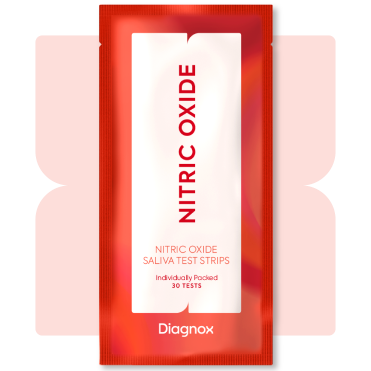Choosing the Best Supplement
Supplements can be an option for those who need an extra boost beyond diet. NO supplements typically contain synthetic nitrates or amino acids like L-arginine and L-citrulline, but their effectiveness varies. Some supplements are:
L-Citrulline and Citrulline Malate
L-Citrulline is a natural amino acid that helps your body make more nitric oxide—a molecule that relaxes and widens blood vessels. This improves blood flow, supports heart health, and can boost your energy and endurance during workouts. Research shows that L-Citrulline can help reduce fatigue and improve both aerobic and anaerobic performance [34].
One reason L-Citrulline is often preferred over L-arginine is how your body absorbs it. When you take L-arginine as a supplement, a lot of it gets broken down in your gut and liver before your body can use it. L-Citrulline avoids that step. It gets turned into arginine in your kidneys, so more of it reaches your bloodstream.That means better absorption and more consistent results.
Citrulline Malate combines L-Citrulline with malic acid, which plays a role in energy production. It still supports nitric oxide, but the added malic acid may help reduce muscle soreness and improve recovery—especially after intense workouts. This version is popular among athletes and weight lifters because it may also help increase oxygen use and overall performance [31].
So if you're mainly focused on circulation and nitric oxide, L-Citrulline is a great choice. If you want an extra boost for energy and muscle recovery, Citrulline Malate might be the better pick.

L-Arginine
L-Arginine is another amino acid your body uses to produce nitric oxide, helping with blood flow, heart health, and workout recovery. It works directly to raise nitric oxide levels—but when taken as a supplement, it’s not absorbed as well as L-Citrulline.
That’s because a large portion of L-arginine gets broken down in your digestive system before it can be used. This makes it less effective on its own, especially at lower doses. Still, studies show it can improve blood flow and performance—especially when combined with L-Citrulline or taken in higher amounts [32].
In short: both supplements can help, but L-Citrulline is often the more reliable option because your body absorbs and uses it more efficiently.

Xanthoparmelia Scabrosa
Xanthoparmelia Scabrosa is a lichen extract that supports nitric oxide production by improving blood vessel dilation. What makes it especially unique is its ability to act as a natural PDE5 inhibitor—the same pathway targeted by medications for erectile function. Because of this, it’s often explored for both circulatory and sexual health benefits. Although less mainstream than other supplements, early research highlights its potential to enhance blood flow and vascular support [33].

Sodium Nitrate
Leafy greens like spinach and arugula are great for boosting nitric oxide, but sodium nitrate supplements give you a stronger and more reliable dose. Instead of depending on how much nitrate is in your food, these supplements provide a set amount that your body can easily use to make nitric oxide.
This helps improve blood flow, supports healthy blood pressure, and helps your body deliver oxygen more efficiently. Sodium nitrate is often used in research and clinical settings because it’s easy to measure and works quickly. One study even showed it helped improve blood vessel health and insulin sensitivity in people with metabolic syndrome [35].
For people who need more support than food can provide—like athletes or those with certain health conditions—sodium nitrate supplements can be a useful option.
But what about the sodium?
That’s a smart thing to ask. Sodium nitrate does contain sodium, but it’s not the same as table salt. It’s usually taken in small amounts, so it won’t add a lot to your daily sodium intake. Still, if you have high blood pressure or are sensitive to salt, it’s best to be cautious. Some people may notice more water retention or changes in blood pressure if they take too much.
If you're unsure, it’s always a good idea to check with your doctor before adding sodium nitrate to your routine.

Bangalala Extract (Eriosema kraussianum)
Bangalala is a traditional African herb known for supporting male vitality. Today, it's gaining attention for another reason—it may help boost nitric oxide and improve blood flow. The plant contains natural compounds that work similarly to how some medications improve circulation and sexual function.
While scientists are still figuring out exactly how it works, early research suggests that Bangalala may help relax blood vessels and support both vascular health and performance [36].

Since supplements aren’t regulated like prescription drugs, quality can differ between brands. Look for third-party testing and consult your healthcare provider before starting a supplement, especially if you take medications.
Making smart choices about food and supplements can keep your NO levels in check—but if you really want to take things up a notch, there are even more ways to boost your NO levels for amazing results.
How To Maximize Nitric Oxide for Peak Performance
Beyond what you eat, your daily habits play a big role in keeping NO levels high. Small lifestyle tweaks can make a big difference in maintaining circulation, endurance, and overall health.
1. Move More
Exercise is one of the best ways to boost NO naturally. It improves blood vessel function, enhances circulation, and helps prevent heart disease [1]. Both aerobic (running, cycling) and resistance training increase NO levels, even in those with cardiovascular issues. Plus, active individuals tend to maintain higher NO levels as they age [2].
2. Breathe Deeply
Nasal breathing stimulates NO production in the nasal passages, improving oxygen flow and cardiovascular function. Slow, controlled breathing techniques (like those used in meditation) are also beneficial [27].
3. Stay Hydrated
Proper hydration supports blood flow and NO function. Dehydration can interfere with NO’s role in circulation and blood pressure regulation [28].
4. Prioritize Sleep
Poor sleep, especially conditions like sleep apnea, can lower NO levels and affect blood vessel function. Quality sleep helps restore balance and protect heart health [29].
5. Rethink Mouthwash
Overusing antibacterial mouthwash may reduce NO production by killing essential bacteria. Studies show it can lower NO levels for up to 12 hours, potentially increasing blood pressure and diabetes risk [30].
Key Takeaways
- Nitric oxide plays a vital role in your body’s health. It supports blood flow, energy production, and even hormone balance. Low levels can lead to fatigue, poor circulation, and decreased performance—especially with age or stress.
- You can naturally boost nitric oxide through diet and lifestyle. Foods like leafy greens, beets, citrus fruits, and garlic help increase nitric oxide. Regular physical activity, hydration, and stress management techniques like deep breathing or meditation also play a big role.
- At-home test strips make tracking your levels simple. You don’t need a lab to know where you stand. Nitric oxide test strips let you monitor changes and stay proactive about your health from home.
Final Thoughts
Boosting NO naturally is simple with the right foods, supplements, and lifestyle changes. Whether you’re an athlete or just looking to improve circulation, incorporating NO-boosting strategies can support your performance and overall health.
Start with organic beets and other nitrate-rich foods, and consider quality supplements if needed. Prioritizing your body’s NO demands can help optimize your endurance, recovery, and long-term wellness.
Want to keep track of your health? Diagnox's Nitric Oxide Saliva Test Strips. The Nitric Oxide Test Strips for Saliva are designed to provide a non-invasive method for assessing your body's nitric oxide (NO) levels, which are crucial for cardiovascular health, vitality, and overall wellness.







.jpg)














